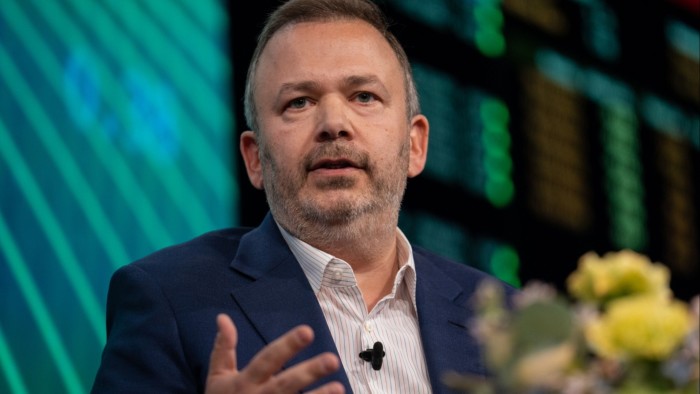Boaz Weinstein takes aim at seven UK investment trusts
Unlock the Editor’s Digest for free
Roula Khalaf, Editor of the FT, selects her favourite stories in this weekly newsletter.
Activist investor Boaz Weinstein has urged shareholders in seven UK investment trusts to overhaul their boards due to weak performance, and outlined plans to put forward his hedge fund as the trusts’ manager.
Weinstein’s Saba Capital has called for shareholder meetings to replace directors on the boards of Baillie Gifford US Growth, CQS Natural Resources Growth & Income, Edinburgh Worldwide Investment, European Smaller Companies, Henderson Opportunities, Herald Investment and Keystone Positive Change.
“The current boards have failed to hold the investment managers accountable” for their “inability to deliver sufficient shareholder returns”, he said in a letter to shareholders on Wednesday. “The Trusts’ managers and their directors have failed shareholders.”
Saba is the largest shareholder in each of the trusts, with stakes ranging from 19 per cent to 29 per cent. The total value of its stakes in the trusts amounts to £1.5bn.
New York-based Weinstein is proposing two new directors on each fund, including himself on one of the funds, and Paul Kazarian, who leads Saba’s investment trust strategy, on the other six trusts.
If the resolutions are passed, and if the new boards decide to replace the existing fund managers, then Weinstein plans to put forward Saba as the trusts’ new manager.
The move comes as the UK’s investment trust sector suffers from wide discounts. There are 294 investment trusts in the UK with assets of £265bn, according to the Association of Investment Companies, which excluded venture capital trusts from its calculations. That is down from 337 trusts with £271bn of assets at the end of 2021.
The seven trusts in Saba’s firing line, which are managed by Janus Henderson, Herald Investment Management, Manulife and Baillie Gifford, have suffered from wide discounts, whereby the performance of shares has lagged behind the value of the trusts’ assets. Discounts range from 12 per cent to 14.7 per cent on average over three years.
“What has caught my attention for the past three years is that the UK trust industry’s discounts have deepened as a consequence of investors losing faith in managers after shockingly poor performance in certain trusts,” Weinstein said. “At the same time, the boards have not held those managers accountable.”
Weinstein said he “prefers private engagement with the boards of the trusts we invest in, but underperformance, persistent trading discounts and disengaged management teams leave us no choice but to act”.
The firm said it had requested that each board conducted its meeting as soon possible, and by early February at the latest, so that shareholders had the opportunity to vote on removing all current directors of the trusts and appoint “new, highly qualified candidates to replace them”.
The hedge fund firm, which manages $5.5bn in assets and is one of the world’s largest single backers of investment trusts, said it would refocus the trusts’ strategies on buying other discounted trusts, to increase scale and strip out costs.
In June, Weinstein suffered multiple setbacks in his plan to take charge of several BlackRock closed-end funds, as shareholders rejected the directors he nominated and voted to keep the funds’ manager.


0 Comment